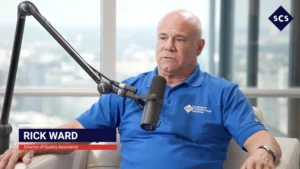NC State’s Wilson College of Textiles Drives Application of Transformative Technology
For nearly 125 years, the Wilson College of Textiles at NC State University has been a hub of innovation and learning, transforming students into experts in the world of textiles. However, as the textile industry grapples with sustainability challenges, the college has taken up the mantle of addressing this pressing issue head-on.
Andre West, a representative of the college, emphasizes the need to confront the industry’s historical lack of sustainability and shift towards a more environmentally conscious approach.
At the forefront of this transformation is the Zeis Textiles Extension, a unit that not only imparts knowledge but also serves as a platform for research and development. Collaborations with various companies have allowed the university to foster partnerships that bring forth groundbreaking ideas.
One such collaboration with St. Louis, MO-based Baldwin Technology Co. Inc. has resulted in an exciting technological breakthrough known as TexCoat ™ G4, highlighted by Rick Stanford, Baldwin’s VP Global Business Development, Textiles.
TexCoat G4 challenges the traditional pad finishing method employed in the textile industry. Instead of saturating the fabric with excess chemicals and water, this innovative technology precisely applies only the required amount of finish onto the fabric.
The results are remarkable, as it reduces water consumption, decreases energy requirements for drying, and enhances production speeds. This transformative approach not only improves efficiency but also aligns with the industry’s growing demand for sustainable practices including carbon footprint reduction.
The Wilson College of Textiles recognizes that today’s students are keenly interested in shaping a future focused on sustainability. They aspire to be part of an industry that embraces cutting-edge technologies, where computers and robots work in tandem to manufacture environmentally friendly products. The shift from an antiquated model to a high-tech industry is underway, and students are eager to be a part of this exciting transformation.
In this captivating video, we have an esteemed lineup of industry experts joining us to shed light on the transformative innovations shaping the textile industry. Andre West, the Director of The Zeis Textile Extension at Wilson College of Textiles at NC State, provides a big-picture perspective on the impact of advancements like TexCoat G4, while Jeff Krauss, the Textile Dyer and Finisher Pilot Laboratory Manager, shares his firsthand experience and delves into the tangible benefits of this new finishing system.
In this captivating video, we have an esteemed lineup of industry experts joining us to shed light on the transformative innovations shaping the textile industry. Mary Ankeny, Vice President of Product Development & Implementation Operations at Cotton Incorporated, promotes the use of cotton in textiles and explains its features, benefits, and sustainable advantage, particularly in collaboration with NC State on sustainability initiatives. Andre West, the Director of The Zeis Textile Extension at Wilson College of Textiles at NC State, provides a big-picture perspective on the impact of advancements like TexCoat G4, while Jeff Krauss, the Textile Dyer and Finisher Pilot Laboratory Manager, shares his firsthand experience and delves into the tangible benefits of this new finishing system.
Lastly, Rick Stanford, the VP of Global Business Development, Textiles at Baldwin Technology, a veteran in the field, guides us through the global implementation and significance of TexCoat, drawing from his extensive knowledge and expertise.
Join us as we dive into the realm of sustainable textiles and discover how industry leaders, including Baldwin Technology are spearheading transformative change and shaping the vibrant future of the dynamic industry.








